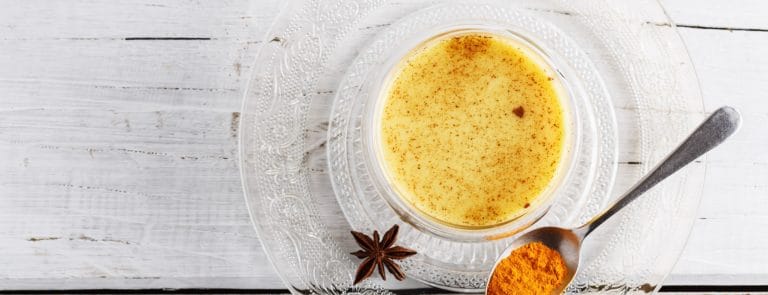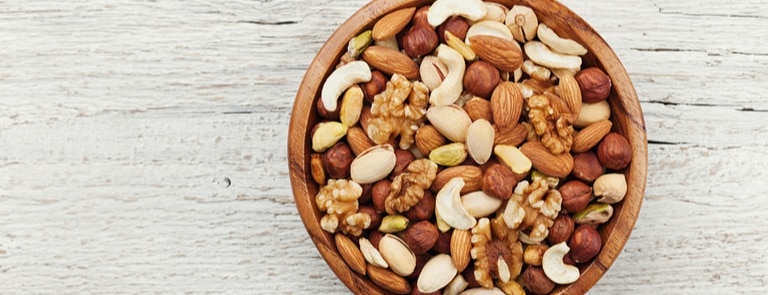10% off £30 OR 15% off £40
Code:DECIDE
Autumnal fatigue: What is it?

Noticed that you're feeling tired with the season change? Introducing Autumnal fatigue. Find out why you're feeling cold and tired and what you can do.
Summary
1Why am I tired?
During the autumn and winter months, your brain produces more of the ‘sleep hormone’ melatonin...
23 tips to help fight autumnal fatigue
Here are the most influential factors that can quickly make you feel better during autumn according to our Sleep Expert!
3Why do I feel cold all the time?
Autumn temperatures in the UK can range from around 5 – 15 degrees centigrade. If you don’t layer your clothes and remember your coat...
There’s plenty to love about Autumn. The colours of the falling leaves, the cosy clothes and the excuse to spend more time relaxing at home.
However, as the nights draw in and colder weather descends, you may simply be left feeling cold and tired. Low mood is also a common issue around this time of year.
If you’re feeling exhausted since the weather has turned, read on to discover why – and what you can do about it.
Why am I tired?
During the autumn and winter months, your brain produces more of the ‘sleep hormone’ melatonin.
This is because you see less sunlight at this time of year, so your brain goes into a semi-hibernation mode.1
This might sound like something only animals do, but the human brain is governed by a light-sensitive circadian rhythm just as the animal brain is.
We have evolved to feel sleepy when it’s dark and alert and awake when it’s light.
That’s why in the summer months we sometimes can get the opposite problem of light too late making it difficult for us to get to sleep, and the early dawns waking us too early!
This can also be the consequence of technology keeping our environment brighter in the evenings.
Before electric lights and central heating, people in northern Europe would naturally do less during the winter. After the autumn equinox at the end of September, crops were harvested and people would prepare for the cold season, which involved plenty of early nights.

Today, of course, your routine is likely to be the same all year round, but the lack of exposure to light and subsequent melatonin production is still making you sleepy as it did our ancestors.
So, in the context of autumn - not only are you being kept awake in the evenings by artificial light, but we are made to feel very sleepy in the mornings by the lack of light. Exactly the opposite to how our bodies like to run!
Another factor for seasonal tiredness could be inactivity. Leading a sedentary life during the colder months (as a result of miserable weather and dark nights) can leave you feeling lethargic and unable to sleep.2
Don’t forget that feeling fatigue and tiredness also makes us less motivated to exercise and move our bodies.
It kind of encourages us to be passive and ‘rest’ more, which instead of alleviating fatigue and tiredness, often makes it worse!
Handpicked content: Guide to fighting fatigue
3 tips to help fight autumnal fatigue
Here are the most influential factors that can quickly make you feel better during autumn according to our Sleep Expert!
In the absence of enough bright natural light, it’s the next best thing (why do we creep around the house in the dark in the mornings? It’s time to get everyone up!).
In order to help this make you feel awake consistently, add the same wake time every single day.
Get out of bed as soon as you can – It will feel hard for a short while….but it will turn you into a morning person!
It’s that old saying of 'how are you gonna feel afterwards?'
It’s true that often exercise is one of those things we have little motivation to do, but makes us feel so good afterwards – one of those ways is to make you feel alert and awake – even after a bad night’s sleep!
Use the behaviours you have available to you to combat how you feel!
Yes, even when it rains! Think about when you get in and can be all cosey again!
The natural daylight will perk you up and support your circulation, helping to energise you, as well as the added benefits of moving your body.
It will also help prompt your circadian rhythm to produce less melatonin when we don’t want it, making you feel more awake.3
It is also the best way to get your vitamin D (more on that later).
Aim for 1 hour even if it’s broken up…. But remember that anything you do that is more than you do now consistently is a great improvement!
Why do I feel cold all the time?
Autumn temperatures in the UK can range from around 5 – 15 degrees centigrade.
If you don’t layer your clothes and remember your coat, you’re likely to feel the cold.
If you’re wrapping up warm and still feeling the chill, it could be due to a number of factors
- Gender - Research has found that men prefer a slightly cooler room temperature of 22 degrees centigrade, while women tend to prefer a warmer 25 degrees centigrade.4
- Body weight – If you have a low BMI and low body fat, you may feel the cold more. Visceral fat provides a layer of insulation which keeps you warmer.
- Reynaud’s – this condition affects your circulation and causes your extremities (fingers, toes etc) to feel cold and numb.
How to stay warm during autumn
- Invest in some winter clothes
Make sure you have some proper winter items such as gloves, thick socks and a proper coat.
Coats can be bought in a nearly-new condition at a significant discount – try online or local charity shops. And remember to layer your winter outfits to trap warm air close to your body. - Don't have the heating on too high
Don't crank up the central heating too high in your home. This will dry out your skin and airways, leaving you at higher risk of skin issues such as eczema.5

Why am I always tired and cold?
Most likely, it’s a combination of burnout, lack of sleep and a poor diet.
More rarely, feeling consistently tired and cold could be a symptom of hypothyroidism.
Also known as an underactive thyroid gland, this condition can cause a drop in core body temperature due to a lowered metabolic rate.6
Other symptoms include tiredness and weight gain. If you think you have hypothyroidism, consult your doctor.
Can lack of quality sleep make you feel cold?
Yes. Sleep helps to regulate body temperature – and skimping on quality sleep can make you feel colder.
Our core body temperature drops slightly during the evening in preparation for sleep, so if you hold off on going to bed, you might feel a chill too, but this is normal.7
It is helpful to have the bedroom a degree or so cooler than the rest of your house to encourage the physiological sleep initiation process, but remember you have got to be comfortable so there is a lot of personal preference here.
When you feel you haven’t had a good night's sleep, carry on with your day making sure you eat a balanced diet and enough food so you are not hungry, you hydrate and you exercise.
Handpicked content: 9 foods to help you sleep
Be social and enjoy your day. The extra sleepiness you build from a bad night plus a good day will actually boost the quality of your next night's sleep!
Go to bed the next night after a bad night when you feel 'sleepy tired'.
Don’t be confused between ‘fatigue tired’ which can be described as so many things such as fatigue, needing to rest, pain, feeling sick, aching, thoughts whirring, etc.
‘Sleepy tired’, on the other hand, really only has one definition – the ability to fall asleep within a few minutes (eyes/head drooping).
It is also the only type of tiredness that requires sleep. Getting this wrong and forcing yourself to bed when you are not sleepy will lead to anxiety, thoughts whirring, and you feeling less sleepy than ever!
Unnecessarily adding more bedtime to your routine does not equal more sleep time.
It is important to rest up when you are not feeling well – but resting, in general, does not mean sleep.
What kind of vitamin deficiency makes you tired?
Feeling tired in winter might have something to do with vitamin D levels.
You make vitamin D from sunlight, so it’s no surprise that during autumn and winter, levels can run low.
Vitamin D helps support normal muscle function and contributes to energy-yielding metabolism.8
DO take a vitamin D supplement. Taking a 10mcg supplement daily is recommended for everyone by Public Health England during the winter months.9
DON’T stay indoors because there’s no sunlight out there. A little activity each day to get the blood flowing could work wonders for feelings of lethargy and seasonal exhaustion.
Symptoms of iron deficiency anaemia include tiredness, lack of energy and shortness of breath.10
While this can affect you at any time of year, you might find yourself busy and putting a balanced diet on the backburner during cold weather in favour of foods that cheer us up.
DO eat an iron-rich, balanced diet including beans, pulses, dried fruit, fortified breakfast cereals and red meat.
DON’T skimp on dark green leafy vegetables and salads.
Foods that make you tired and sluggish
Sugary food and drinks cause glucose and insulin spikes, which can leave you feeling tired and sluggish as your body works to balance your blood sugar.11
Reduce the usual suspects here – cakes, biscuits, fizzy drinks, pastries and takeaways offer a short-term pick-me-up but will leave you feeling worse long-term.
Too many refined carbohydrates such as white pasta and white bread turn to sugar rapidly in your bloodstream and can have a similar effect.
Of course, we’d never suggest forgoing carbs altogether – especially when it’s cold outside!
DO eat for energy. Try to stick mostly to complex carbs such as brown bread, brown rice, vegetables and sweet potatoes.
DON’T eat for a short-term energy boost all the time. Eat for overall health (whilst still enjoying your food) and you’ll help reduce feelings of tiredness.
- https://www.sleepfoundation.org/circadian-rhythm
- https://positivepsychologynews.com/news/marie-josee-salvas/2010062411993
- https://www.ncbi.nlm.nih.gov/pmc/articles/PMC2768314/
- https://pubmed.ncbi.nlm.nih.gov/15676395/
- https://www.eucerin.co.uk/about-skin/indications/itchy-skin
- https://www.nhs.uk/conditions/underactive-thyroid-hypothyroidism/symptoms/
- https://www.sleep.org/lack-of-sleep-impact-on-body/
- https://www.ncl.ac.uk/press/articles/archive/2013/04/
- https://www.nhs.uk/conditions/vitamins-and-minerals/vitamin-d/
- https://www.nhs.uk/conditions/iron-deficiency-anaemia/
- https://digitalscholarship.unlv.edu/cgi/viewcontent.cgi?article
The advice in this article is for information only and should not replace medical care. Please check with your GP or healthcare professional before trying any supplements, treatments or remedies. Food supplements must not be used as a substitute for a varied and balanced diet and a healthy lifestyle.
Related Articles
Shop by wellness goal
Sign up for exclusive offers
Plus, get expert advice to support your health & wellness straight to your inbox when you sign up to Holland & Barrett emails.
Read our
privacy policy














